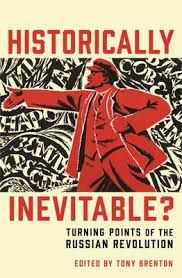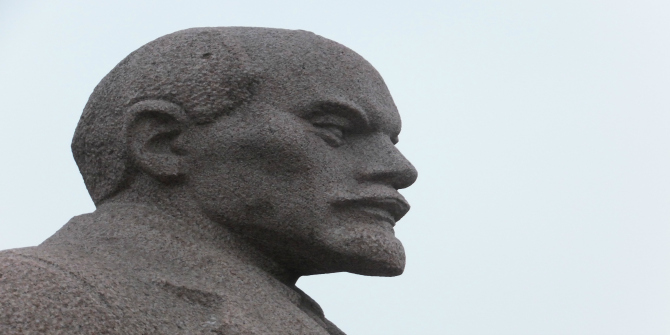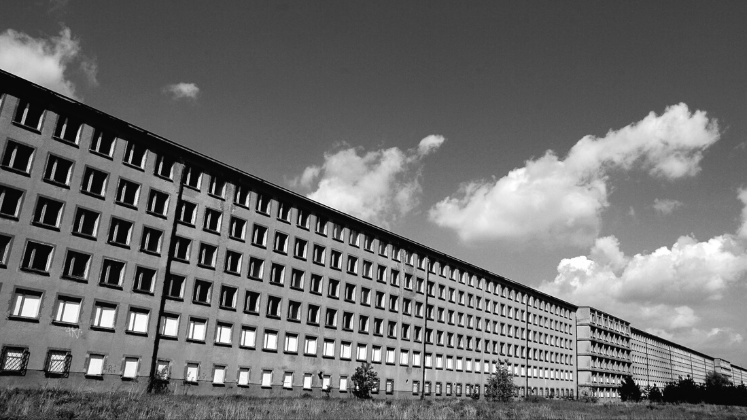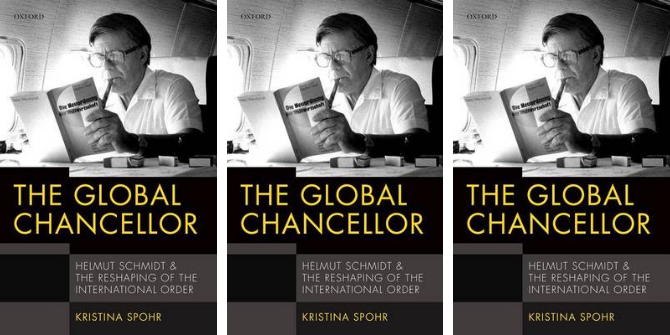For the edited collection Historically Inevitable: Turning Points in the Russian Revolution, editor Tony Brenton brings together fourteen leading scholars to consider the inevitability of the Russian Revolution by focusing on key turning points. While readers may not necessarily share the authors’ commitment to the utility of counterfactual history, the volume contributes to our understanding of the various agents and actors involved in the Revolution through its detailed perspectives and wealth of information, finds Roberto A Castelar.
Historically Inevitable: Turning Points in the Russian Revolution. Tony Brenton (ed.). Profile Books. 2016.
 As a tool for historical research, counterfactual history has been dismissed by many historians on account of its purely speculative character, but it still retains the sympathy of a number of scholars working in various fields. The study of the Russian Revolution has been an area in which this methodology seems to be recurrent. Famous cases include Moshe Lewin’s attempt in Lenin’s Last Struggle to show how the Soviet system would have developed had Lenin succeeded in demoting Stalin and Stephen Cohen’s ideas about the historical scenario that would have resulted had Bukharin won his political battle against Stalin in the late 1920s. Historically Inevitable: Turning Points in the Russian Revolution gives continuity to this approach by gathering a number of scholars with different specialisms and outlooks to assess those processes in which the history known to us seems dependent on special circumstances that might easily not have happened.
As a tool for historical research, counterfactual history has been dismissed by many historians on account of its purely speculative character, but it still retains the sympathy of a number of scholars working in various fields. The study of the Russian Revolution has been an area in which this methodology seems to be recurrent. Famous cases include Moshe Lewin’s attempt in Lenin’s Last Struggle to show how the Soviet system would have developed had Lenin succeeded in demoting Stalin and Stephen Cohen’s ideas about the historical scenario that would have resulted had Bukharin won his political battle against Stalin in the late 1920s. Historically Inevitable: Turning Points in the Russian Revolution gives continuity to this approach by gathering a number of scholars with different specialisms and outlooks to assess those processes in which the history known to us seems dependent on special circumstances that might easily not have happened.
Historically Inevitable offers detailed perspective on a number of crucial aspects with a broadness that is not found in most general historical accounts of the Russian Revolution and that might otherwise only be obtained in specialised books that address each topic separately. The implication of this is that a general knowledge of the history of the Revolution is needed to understand most chapters properly, even if the style and structure are completely approachable for non-specialists. Editor Tony Brenton aligns himself in the introduction and the afterword with a particular historiographical approach — which might be called the ‘totalitarian’ framework of interpretation, the main characteristic of which is an emphasis on political institutions and processes rather than social and economic history — but the topics are examined from a variety of historiographical perspectives.
The selection of topics is generally good, covering the relevant phases of the history of the Revolution along with the most obvious events in which fortuitous circumstances seem to have been highly decisive: Nicholas II’s war decisions; Lenin’s lucky escape from the police in St Petersburg before October 1917; Lenin’s survival of Fanny Kaplan’s mortal attack and so forth. Some omissions are regrettable. The chapter on the Russian Civil War, by Evan Mawdsley, focuses mostly on the fight between the Reds or Bolsheviks and the Whites, but it would have been illustrative to consider what would have happened had the Social Revolutionaries, or Greens, the party of the peasants which obtained the majority in the Constituent Assembly, won the military clash with the Bolsheviks in the months before Kolchak’s coup. Worth exploring also was the possibility of Lenin not having succeeded in convincing the Bolsheviks to promote the treaty of Brest-Litovsk and the regime accepting Allied help against Germany in the context of the international war, considering the opposition that he faced to impose a line of action that appeared to all as cynical treason.
 Image Credit: Lenin (James Cridland CC BY 2.0)
Image Credit: Lenin (James Cridland CC BY 2.0)
It is important to keep in mind that the various contributors often provide a personal perspective to historical problems that tend to be objects of controversy. Richard Pipes, for instance, argues that Kerensky’s claim that Kornilov intended a coup against the Provisional Government was based on a misunderstanding; if this episode had not happened, Kornilov could possibly have helped the Provisional Government against the Bolsheviks. Nonetheless, Kornilov’s true intentions are not as clear as to avoid any divergence of interpretation, and other authors would cast doubts on his supposed loyalty. For the careful reader, the various essays might also continuously raise questions of historical causation. Martin Sixsmith, for example, tends to attribute the unleashing of Bolshevik bloody terror in 1918 mostly to Kaplan’s attempt at killing Lenin. However, it is not difficult to suppose that this was just a catalyst for more ruthless subterranean tendencies, and that another event would also have provoked the emergence of Bolshevik Terror.
Historically Inevitable would have been strengthened if Brenton had made a more elaborate case in support of its central purpose. He recognises that counterfactual history is not welcomed as a tool of historical research by many scholars, and observes that some potential contributors declined to participate in this project on this account. Yet, it would have been opportune if the book had offered reasons to think that counterfactual history has any utility in historiography. Many good arguments have been made elsewhere, for example in Fascism studies — given the short-lived character of European Fascist regimes, it is not possible to know how they would have operated across larger periods of time or in other conditions. It has therefore been argued that counterfactual scenarios help separate contingency from structural aspects, even if it is not possible to fully leave the realm of pure speculation. Brenton simply assures us that claims of historical inevitability cannot be assessed except through counterfactual history; but the reader is left with doubts as to whether this exercise might have a bit more to contribute to the historiography of the Russian Revolution or the Soviet state.
It is not made clear, in addition, what exactly ‘historical inevitability’ amounts to for the purposes of this collection. Does it mean that an event is determined to happen as a result of unmodifiable historical forces or permanent factors? Or does it mean that, in a given historical scenario, the various relevant factors are conducive to one outcome that cannot be changed? These are different ideas with different implications, but the book seems to conflate them at certain times. The first meaning corresponds to what was preached in post-Lenin Soviet propaganda — curiously, the Bolsheviks themselves seem not to have held any belief in the inevitability of their revolution, as Lenin’s own words suggest (129). Most of the essays, however, tend to adopt the second meaning, which provides a more interesting content for assessment and might allow us to connect the results of this exercise with general discussions about what preconditions are needed for political regimes to develop or fail.
Based on the essays, the afterword argues that Bolshevism was not inevitable for Russia, and that a different outcome was possible if some circumstances had not happened or had happened differently. This, of course, is not likely to provoke controversy. More surprising for some readers would be Brenton’s partialness for the claim that a democratic development was not possible in Russia, and that the Soviet regime gave continuity (in some form) to the supposedly inherent autocratic tendencies in the Russian political experience. The alternative to Bolshevism, he tells us, was probably another dictatorship. This claim is widely known and for much time has been very popular, but, as Juan J. Linz insisted in his Totalitarian and Authoritarian Regimes (17), history shows that democracy has often developed where the supposed conditions for it were absent and has collapsed where it had good conditions to develop.
Ultimately, what is needed to answer the main question set forth by this book is much more than what its methodology could achieve. Whether there was any real alternative to Bolshevism or another dictatorship cannot be determined solely in reference to the contingency of events; it requires a consideration of many conditions and underlying factors. Yet the exercise is not without value and contributes to our understanding of the role of various agents and actors in points of crucial historical importance. There is no need to agree with the authors in their commitment to the utility of counterfactual history to benefit from this book. Even those who think that counterfactual history is no more than amusement might gain from the wealth of interesting information that is offered in Historically Inevitable.
Roberto A Castelar is a graduate student at Central European University in Budapest, specialising in Political Theory. He previously studied Russian and Eastern European History at University of Glasgow and University of Tartu (Estonia).
Note: This review gives the views of the author, and not the position of the LSE Review of Books blog, or of the London School of Economics.







